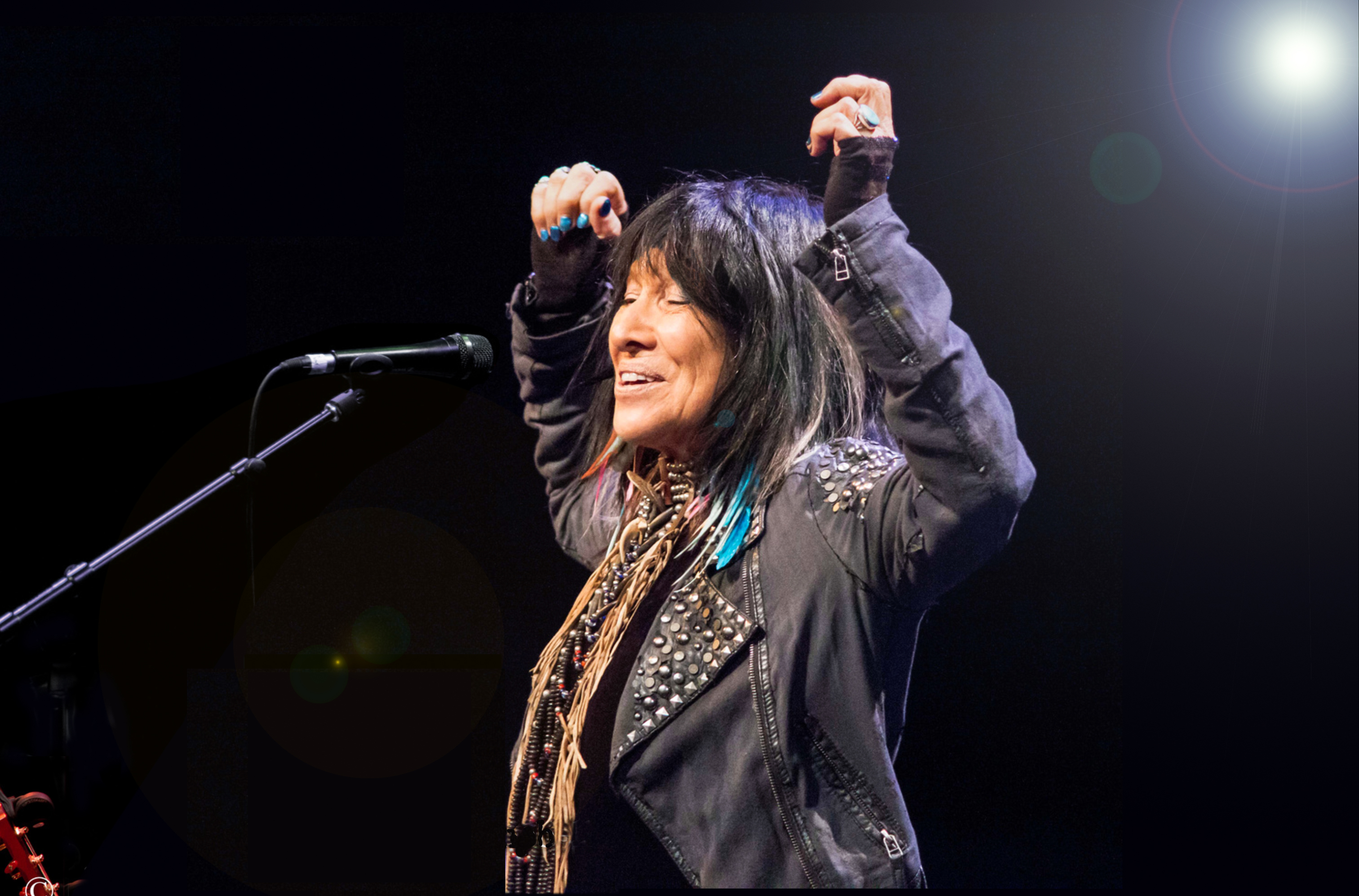
- Details
- By Levi Rickert
Award-winning singer and song-writer Buffy Sainte-Marie (Piapot Cree Nation) is retiring from live performances. The retirement of the 82-year-old singer was announced Thursday evening through her publicist.
The announcement cited a combination of contributing factors including travel-induced health concerns and performance-inhibiting physical challenges that led to her decision to retire at this time from live performances.
“I have made the difficult decision to pull out of all scheduled performances in the foreseeable future. Arthritic hands and a recent shoulder injury have made it no longer possible to perform to my standards. Sincere regrets to all my fans and family, my band and the support teams that make it all possible,” Sainte-Marie said in a statement provided through her publicist.
Sainte-Marie entered the music scene during the 1960s by singing in folk music clubs. She is multi-talented, who is a singer-songwriter, musician, composer, and visual artist.
Her music speaks out about the environment, alternative conflict resolution, Indigenous truth, and fighting corruption. Sainte-Marie is a unique force in the music industry
Sainte-Marie became a Native American activist during the Red Power movement, which gave voice to Native American concerns and issues. Her artistry, humanitarian efforts, and Indigenous leadership have made a positive impact for decades.
Through the decades, Sainte-Marie has garnered numerous awards, including an Oscar and a Golden Globe Award in 1983 for co-writing the hit song Up to Where We Belong.
More Stories Like This
Zuni Youth Enrichment Project Takes Top Emerging Artist Apprentices to Phoenix for Artistic Exploration and Cultural ImmersionFrom Dishwasher to Award-Winning Chef: Laguna Pueblo's Josh Aragon Serves Up Albuquerque's Best Green Chile Stew
Rob Reiner's Final Work as Producer Appears to Address MMIP Crisis
Vision Maker Media Honors MacDonald Siblings With 2025 Frank Blythe Award
First Tribally Owned Gallery in Tulsa Debuts ‘Mvskokvlke: Road of Strength’
Help us defend tribal sovereignty.
At Native News Online, our mission is rooted in telling the stories that strengthen sovereignty and uplift Indigenous voices — not just at year’s end, but every single day.
Because of your generosity last year, we were able to keep our reporters on the ground in tribal communities, at national gatherings and in the halls of Congress — covering the issues that matter most to Indian Country: sovereignty, culture, education, health and economic opportunity.
That support sustained us through a tough year in 2025. Now, as we look to the year ahead, we need your help right now to ensure warrior journalism remains strong — reporting that defends tribal sovereignty, amplifies Native truth, and holds power accountable.
 The stakes couldn't be higher. Your support keeps Native voices heard, Native stories told and Native sovereignty defended.
The stakes couldn't be higher. Your support keeps Native voices heard, Native stories told and Native sovereignty defended.
Stand with Warrior Journalism today.
Levi Rickert (Potawatomi), Editor & Publisher


